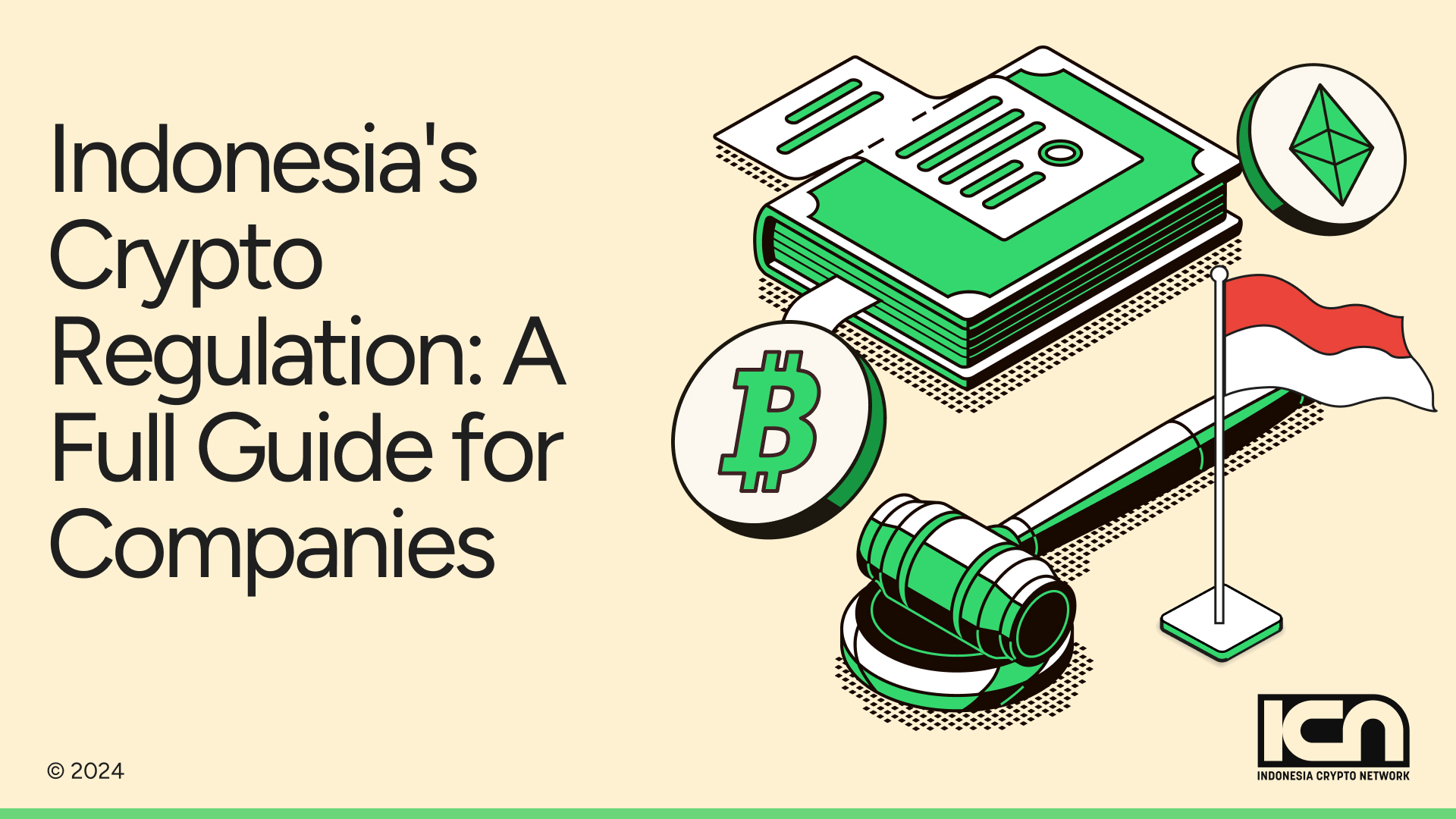TL;DR
- Businesses must secure a license from Bappebti by meeting financial requirements (minimum paid-in capital of IDR 100 billion), having a structured organization, ensuring system security, and committing to regulatory reporting.
- Adhering to international standards like FATF is crucial. This includes implementing KYC and AML procedures, especially for transactions over US$1.000, and ensuring tax compliance for crypto transactions.
- With OJK poised to assume oversight from Bappebti by 2025, businesses need to stay informed about potential new classifications and requirements.
- Participating in the OJK Regulatory Sandbox allows for testing products in a controlled environment and receiving feedback, while consistent communication ensures businesses stay updated.
- Consulting local legal experts can provide tailored assistance in navigating the licensing process, ensuring compliance, and understanding the evolving regulatory landscape.
Indonesia is not merely riding the wave of the global crypto surge; it is swiftly emerging as one of Southeast Asia’s most vibrant hubs for digital finance. The crypto user base has skyrocketed from 9.9 million in 2021 to an astonishing 20.9 million by 2024. According to Chainalysis, Indonesia has climbed from seventh to third place globally for crypto adoption, reflecting the highest annual growth rate among countries, nearing an impressive 200%.
The driving force behind this boom? Millennials and Gen Z—tech-savvy consumers who crave seamless and secure trading experiences. With smartphone penetration exceeding 75% and a strong familiarity with digital transactions, these users are primed to dive into a diverse array of crypto services. Yet, with a population exceeding 280 million, the market’s potential remains vast, as only about 20.9 million individuals are currently engaging with cryptocurrencies. This presents a remarkable opportunity for businesses to tap into a rapidly growing audience as awareness and education about digital finance expand.
However, capturing this lucrative market requires more than merely launching a platform. Navigating Indonesia’s evolving regulatory landscape is essential for building trust and credibility.
This guide offers a comprehensive roadmap for businesses aiming to navigate Indonesia’s crypto regulations, build trust, and strategically position themselves for future growth
Licensing Requirements for Crypto Businesses
The first step for businesses looking to operate legally in Indonesia is obtaining a license. The process, governed by Bappebti Regulation No. 13 of 2022, requires companies to meet stringent financial and operational standards.
Key Licensing Requirements
- Financial Stability: A minimum paid-in capital of Rp100 billion (~US$6 million) and maintained equity of at least IDR 50 billion (~US$3 million) are required to ensure only financially stable companies operate in the market.
- Organizational Structure: Businesses must have dedicated teams for Information Technology, Legal Compliance, Customer Support, and Risk Management, indicating their ability to handle operations effectively.
- System Security: Exchanges need to implement secure trading systems connected to the Commodity Exchange and Commodity Clearing Institution, ensuring transparency and user security.
- Regulatory Reporting: Licensed exchanges must regularly submit detailed reports to Bappebti, including financial statements and risk management strategies.
Licensed businesses gain a competitive edge as secure, reliable platforms. This credibility can attract retail users and institutional investors, essential in a market that prioritizes compliance.
Essential Compliance Practices for Businesses
Compliance is a continuous process, especially in Indonesia’s crypto market, where businesses must adhere to regulations aligned with international standards like the Financial Action Task Force (FATF).
For transactions over US$1.000 companies must collect detailed sender and recipient information to enhance security and foster trust among users. Additionally, robust Anti-Money Laundering (AML) and Know Your Customer (KYC) procedures are crucial in monitoring and verifying transactions, ensuring both regulatory compliance and user confidence.
Furthermore, Indonesia’s tax policies require businesses to apply income tax (0,1%) and VAT (0,11%) on crypto transactions, making tax compliance essential for smooth operations. Investing in technologies for identity verification and AML monitoring not only fulfills regulatory requirements but also elevates the platform’s reputation by creating a safer trading environment for users.
Read more: Insights on Indonesia Crypto Industry Growth 2024: Tax Revenue, Transaction Volume, and User Growth
Preparing for the Future
Indonesia’s regulatory environment is on the brink of transformation, with the Financial Services Authority (OJK) set to take over market oversight from Bappebti by 2025. This transition may introduce new classifications and compliance requirements, making it essential for businesses in the crypto sector to understand these changes.
To effectively navigate this evolving landscape, businesses can adopt several proactive strategies. Engaging with the OJK Regulatory Sandbox allows companies to test new financial products and services in a controlled environment before launching them to the public. This participation not only helps in adapting to new regulations but also minimizes the risks associated with non-compliance, offering valuable feedback from regulators to refine offerings.
Furthermore, maintaining regular communication with OJK and Bappebti ensures that businesses stay informed and can adjust their strategies accordingly. This proactive approach can simplify future licensing processes and reinforce a company’s commitment to compliance.
In conclusion, understanding and preparing for the regulatory changes in Indonesia is vital for businesses aiming to succeed in the crypto market. By embracing compliance, building trust, and actively engaging with regulatory initiatives, companies can secure their position in this rapidly evolving industry.
Read more: Crypto Exchange Licensing in Indonesia: Regulations and Requirements
Conclusion and Next Steps
Navigating Indonesia’s crypto regulations is more than a legal obligation; it’s a strategic move for market growth and credibility. By securing the right licenses, implementing compliance practices, and preparing for future regulatory changes, businesses can establish themselves as reliable leaders in Indonesia’s thriving crypto ecosystem.
Ready to tap into Indonesia’s crypto market? Start by consulting with local legal experts for guidance through the licensing process. Invest in compliance infrastructure, engage with OJK’s regulatory sandbox, and stay connected with regulatory developments to position your business as a trusted platform in Indonesia’s dynamic crypto landscape.
If you’re looking for guidance on becoming legally compliant and building connections within Indonesia’s crypto community, the Indonesia Crypto Network the team is here to support you. We’re happy to discuss how we can help you navigate the regulatory landscape and explore opportunities for your business. Feel free to reach out to us anytime to learn more.
- FATF: An intergovernmental organization setting standards to combat financial crimes, influencing Indonesia’s crypto regulations.
- KYC and AML: KYC (Know Your Customer) focuses on verifying customer identities, while AML (Anti-Money Laundering) encompasses procedures to prevent illegal income generation, both crucial for compliance in the crypto market.
- OJK: The Indonesian Financial Services Authority, set to assume regulatory control over crypto in 2025.
- OJK Regulatory Sandbox: A program enabling businesses to test financial products and services in a controlled environment before public launch, helpful for adapting to new regulations.




